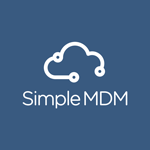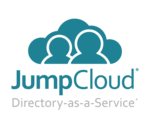What Is Mobile Device Management Software?
Mobile Device Management Software is a sophisticated solution that assists businesses in managing and securing their mobile devices, such as smartphones, tablets, and laptops. It enables enterprises to remotely configure, monitor, and secure all of their devices from a single location, providing a complete solution for managing a large number of mobile devices.
This software offers a variety of capabilities, including device inventory management, application distribution, security measures like device encryption and data backup, and remote troubleshooting. Mobile Device Management Software protects data and assures compliance with company regulations by tracking device usage and remotely wiping or locking devices in the event of loss or theft.
This program can manage both company-owned devices and personal devices used by employees for work. This helps to ensure that critical company data is secure and quickly erased when an individual leaves the organization. Mobile Device Management Software is an essential tool for enterprises of all sizes, particularly those with a high number of mobile devices in use. It offers a consolidated and streamlined approach to device management, saving IT teams time and effort while assuring the protection of critical data. It is an excellent investment for any firm seeking to increase mobile device management and strengthen overall security measures.
What Are The Recent Trends In Mobile Device Management Software?
Mobile device management (MDM) software has become a vital tool for businesses that want to manage and secure their mobile devices and data. As technology advances, so are trends in mobile device management software.
We'll look at the latest trends in MDM software and how they can help your business.
1. Cloud-Based Solution: One of the most significant trends in MDM software is the transition to cloud-based solutions. With the advent of remote work and the requirement for flexibility, businesses are increasingly turning to cloud-based MDM solutions rather than traditional on-premise ones. This simplifies device maintenance and upgrades while also improving scalability.
2. Bring Your Own Device (BYOD) Support: Another significant trend in MDM software is the growing acceptance of BYOD policies. As more employees use their own devices for work, MDM software now enables secure administration of personal devices, ensuring that important company data is protected without jeopardizing the user's privacy.
3. Artificial Intelligence And Automation: MDM software now contains advanced capabilities like artificial intelligence (AI) and automation, which improves device management efficiency and effectiveness. AI can evaluate device usage patterns to detect potential security threats, whilst automation can handle regular operations such as device upgrades and backups, freeing up IT workers for more critical tasks.
4. Zero Trust Security: As cyber risks evolve, MDM software is adopting a zero-trust security model. This means that all devices are considered potentially hacked and must be continually authenticated and permitted before accessing any data or resources. This strategy reduces the danger of data breaches and provides a higher level of protection for all devices.
5. Integration With Unified Endpoint Management (UEM): As the number of devices in the workplace grows, MDM software is becoming more integrated with UEM solutions to allow unified management of all endpoints, including laptops and desktops. This simplifies device management and provides a more complete view of all devices in the organization.
Benefits Of Using Mobile Device Management Software
Mobile Device Management (MDM) software has emerged as a vital tool for enterprises of all sizes in today's digital economy. It enables enterprises to manage and secure their mobile devices, such as smartphones and tablets, via a centralized platform. MDM software has numerous benefits and can significantly improve the efficiency and security of a company's mobile device usage.
These are the top benefits of utilizing MDM software and how it can help your organization.
1. Enhanced Security: One of the most significant advantages of MDM software is increased security for your company's mobile devices. Organizations face rising security threats, such as data breaches and cyber-attacks, as mobile devices become more prevalent in the workplace. MDM software enables the adoption of rigorous security standards, such as data encryption, passcode requirements, and remote data wipe in the event of device loss or theft. This ensures that sensitive company data is always protected, lowering the chance of security breaches.
2. Centralized Device Management: MDM software offers a consolidated platform for managing all mobile devices used by a company. This means that IT managers can remotely manage and monitor any devices, independent of their physical location. They can simply distribute software updates, install programs, and resolve problems without requiring physical access to the device. This improves management efficiency and saves valuable time and resources.
3. Increased Control And Flexibility: MDM software provides businesses with better control and flexibility over how they use mobile devices. It enables IT administrators to establish use limits and restrictions to ensure compliance with company standards. They can, for example, ban specific apps or websites, limit data consumption, and enforce password requirements. Additionally, MDM software allows for the establishment of bespoke profiles for different groups of users, making it easier to manage devices for specific teams or departments.
4. Improved Efficiency: By automating many parts of device management, MDM software can greatly improve a company's mobile operations. With features like remote configuration, updates, and troubleshooting, IT staff may save time and resources that would otherwise be spent on manual device management duties. This enables them to focus on more important company objectives, resulting in increased productivity and efficiency.
5. Cost Savings: Using MDM software can also lead to significant cost reductions for enterprises. Centralized management and automation eliminate the need for expensive on-site IT support, lowering costs for device setup, maintenance, and troubleshooting. In addition, MDM software can assist prevent unauthorized usage and data overages, thus saving money on mobile service plans.
Important Factors To Consider While Purchasing Mobile Device Management Software?
Mobile Device Management (MDM) software is critical for businesses and organizations that rely on mobile devices to conduct daily operations. With the increased use of mobile devices in the workplace, effective device management and security has become a primary responsibility. However, with so many MDM software options available on the market, it can be difficult for consumers to choose the best one.
Here are some key aspects to consider when selecting MDM software to help you make an informed decision.
1. Device Compatibility: The most important issue to examine is if the MDM software is compatible with the devices that your organization utilizes. It should be compatible with a wide range of devices, including smartphones, tablets, and laptops running diverse operating systems such as iOS, Android, and Windows.
2. Deployment Options: MDM software can be deployed on-premises or in the cloud. On-premise deployment needs hardware and software installation, whereas cloud deployment is hosted on a remote server. Choose the best deployment option for your organization based on its needs and resources.
3. Features And Capabilities: To verify that the MDM software matches your organization's needs, you must analyze its features and capabilities. Device tracking and location, application and content control, remote lock and wipe, and secure network access are some of the most important things to look for.
4. Security And Compliance: Because MDM software is essential for safeguarding and managing mobile devices, security should be prioritized. Look for data encryption, antivirus protection, and adherence to data privacy requirements such as GDPR and HIPAA.
5. User-Friendly Interface: Using MDM software effectively requires a user-friendly interface. It should be simple to navigate and have a neat and structured layout. In addition, the software should provide user training and assistance to enable a smooth implementation.
6. Scalability And Flexibility: As your company grows, the MDM software should be able to scale and accept more devices and users. It should also be adaptable enough to changes in your organization's demands and rules.
7. Integration With Existing Systems: MDM software should be smoothly integrated with your organization's existing systems and applications, such as email, calendar, and CRM. This will enable efficient processes and productivity.
8. Pricing And Support: Finally, investigate the MDM software's pricing and support options. Look for pricing plans that are within your budget, as well as support choices like customer service, technical assistance, and online resources.
What Are The Key Features To Look For In Mobile Device Management Software?
When choosing Mobile Device Management (MDM) software for your organization, there are a few critical elements to consider to guarantee you make the best option for your specific needs. MDM software is intended to help you manage and secure mobile devices within your enterprise, such as smartphones and tablets.
The following are the key features to look for when selecting an MDM software:
1. Device Compatibility: The first and most critical aspect to examine is compatibility. You must ensure that the MDM software you select is compatible with the devices used by your employees. This includes not just the type of devices, but also the operating systems and versions they use. A decent MDM software should work with a wide variety of devices, including those running different operating systems like Android, iOS, and Windows.
2. Remote Management And Control: One of the primary benefits of MDM software is the ability to remotely manage and control devices. Look for options like remote lock and wipe, which allow you to remotely lock or erase a lost or stolen device in order to secure important data. Furthermore, the software should have the capacity to remotely send updates and configurations to devices, eliminating the need for manual upgrades and guaranteeing that all devices are running the most recent software.
3. Secure Content And Data Management: Data security is critical when handling mobile devices. Look for MDM software that has safe content and data management capabilities like encryption and backup. This will help to safeguard your organization's critical information and avoid data breaches.
4. User Management And Access Control: A decent MDM software should allow you to manage users and their access to devices and applications. This covers features like user authentication, multi-factor authentication, and rights and limits for individual people or groups.
5. Application Management: Another key element to consider is the capacity to administer and regulate mobile applications. Look for MDM software that enables you to remotely install, update, and uninstall applications from devices. This will help to verify that all devices run approved and secure software.
6. Reporting & Monitoring: To keep track of your devices and their activity, seek for MDM software that includes strong reporting and monitoring features. This should provide tools like device tracking, usage statistics, and activity logs. These capabilities will assist you in identifying potential security threats and monitoring user behavior.
7. Customer Support And Training: Finally, ensure that the MDM software you select provides dependable customer support and training. This will ensure that you can use the software efficiently and resolve any issues that may arise.
Why Do Businesses Need Mobile Device Management Software?
As businesses rely more on mobile devices for day-to-day operations, effective mobile device management (MDM) becomes more important. MDM software enables organizations to protect, monitor, and control their employees' mobile devices, ensuring that they are utilized responsibly and in accordance with company regulations. One of the primary reasons firms want MDM software is to safeguard sensitive information.
Customer data, financial records, and intellectual property are common examples of private information stored on mobile devices. Without effective supervision, these devices are prone to security breaches, placing firms at risk of data theft or leakage. MDM software reduces these risks by imposing security measures including encryption, strict password requirements, and remote wiping of lost or stolen devices.
Furthermore, MDM software enables firms to analyze and manage device usage, providing insights into how employees use these devices. This data can help firms make more educated decisions about device allocation, software usage, and data consumption. MDM software also allows organizations to put limitations and limits on specific apps and functions, ensuring that devices are exclusively used for professional purposes.
Another important aspect of MDM software is its ability to simplify device deployment and maintenance. With an increasing number of mobile devices in the workplace, manually configuring each device can be time-consuming and error-prone. MDM software automates the device setup process, lowering the workload for IT professionals and assuring consistent device setups.
Furthermore, MDM software assists firms in complying with industry norms and standards. With rigorous data privacy standards in place, such as GDPR and HIPAA, organizations must have control over the devices and data that their employees use. MDM software gives the tools required to ensure compliance and prevent costly penalties.
How Much Time Is Required To Implement Mobile Device Management Software?
The time required to adopt mobile device management software varies depending on a number of factors, including the organization's size, current IT infrastructure, and the complexity of the chosen software solution. Implementing mobile device management software can take anything from a few weeks to several months, depending on the reasons described above.
It is a critical and multi-step procedure that requires meticulous design, testing, and implementation. The first step is to examine the organization's present IT infrastructure and establish its mobile device management requirements. This includes determining the number of devices that must be controlled, their operating systems, and the exact characteristics necessary for secure management. The chosen software solution must then be installed and configured, which can take anything from a few days to several weeks.
This includes creating policies, defining user roles and rights, and connecting the software with existing systems like email and network access. Once installed, the software must be thoroughly tested to ensure that it satisfies the organization's requirements and performs as intended. This testing step may take many weeks, depending on the software's complexity and the organization's resources. Finally, the software can be deployed to all devices in the business, which could take a few days or weeks depending on the number of devices to monitor and available resources.
What Is The Level Of Customization Available In Mobile Device Management Software?
The level of customisation accessible in Mobile Device Management (MDM) software varies according to the individual features and capabilities provided by each supplier. However, in general, MDM software provides a high level of customization to match the specific demands of each business. One of the most important elements to consider when assessing the level of customisation in MDM software is the number of policies and settings available for configuration.
These policies enable administrators to oversee and manage numerous elements of mobile devices, including security, apps, and data consumption. Most MDM solutions have a large number of pre-defined policies that may be changed and applied to certain user groups or mobile device types. Furthermore, several providers allow organizations to design their own policies from start to meet their specific needs.
Another feature of customisation in MDM software is its ability to interact with other systems and applications. For example, some MDM solutions support integration with corporate email systems, identity management systems, and other enterprise applications. This can give a consistent user experience and make management easier for IT teams.
Furthermore, MDM software frequently includes possibilities for branding and customizing. This includes personalizing the user interface with logos, colors, and branding materials that are consistent with an organization's branding rules. Additionally, some solutions enable administrators to design bespoke dashboards and reports to meet their specific reporting requirements.
One of the primary advantages of a fully customized MDM system is its ability to be tailored to an organization's specific security and compliance needs. MDM software often includes a number of security and compliance features, including password policies, encryption, and remote wipe capabilities. The level of customization in these settings allows firms to impose their own security requirements while also complying with industry rules.
Which Industries Can Benefit The Most From Mobile Device Management Software?
Mobile Device administration (MDM) software is an essential tool for enterprises and organizations of all kinds since it allows for effective mobile device administration while also protecting sensitive data. Certain industries, however, may benefit more from MDM software due to their distinct needs and challenges.
Let's explore, which industries can benefit the most from MDM software, as well as the important characteristics to look for when picking a solution.
1. Healthcare: Mobile devices are heavily used in the healthcare business to access patient records, connect with colleagues, and obtain important medical information. MDM software ensures HIPAA compliance by including stringent security methods like remote wipe and data encryption. It also enables the efficient management of a large number of devices used by healthcare providers, lowering the danger of data breaches and ensuring patient confidentiality.
2. Education: As mobile devices become more popular for teaching and learning, MDM software becomes an invaluable tool for managing and securing them. Schools and universities can use MDM to give students and teachers access to educational materials while also keeping control over the apps and content they use. It also supports remote management and troubleshooting, minimizing the requirement for IT personnel to physically visit each device.
3. Retail: In the retail industry, mobile device management software is critical for controlling mobile devices used by staff for inventory management, sales transactions, and customer care. It enables easy app and update deployment, ensuring that all devices are up to current and working seamlessly. MDM also allows shops to follow their devices in case they are lost or stolen, as well as remotely erase important data to prevent illegal access.
4. Financial Services: Because financial firms deal with sensitive data and must follow tight compliance laws, MDM software is vital in this market. Banks, insurance companies, and other financial organizations can use MDM to enforce security regulations, protecting sensitive information and preventing data breaches. It also enables efficient management of devices used by remote personnel, ensuring they have access to necessary tools and upgrades while protecting data privacy.
5. Government: Government employees in various departments and places frequently utilize a significant number of mobile devices. As a result, MDM software is a crucial tool for managing data efficiently and securely. MDM enables remote monitoring, troubleshooting, and updates, eliminating the need for IT workers to physically visit each device.
It also allows agencies to limit the apps and material that employees may access, ensuring that security standards and regulations are followed. MDM software can assist any firm with a significant number of mobile devices and tight security procedures, in addition to those listed above. Manufacturing industries, hospitality enterprises, transportation and logistics corporations, and others are examples. When choosing an MDM solution, make sure it includes capabilities like device control, security, app management, and reporting to ensure it matches your specific industry requirements.
Conclusion
To summarize, selecting the appropriate mobile device management (MDM) software is critical for any organization seeking to properly manage and secure its mobile devices and data. Buyers may find it difficult to make a decision when faced with so many options on the market. However, by taking into account essential elements such as scalability, security, functionality, and cost, as explained in this buyer's guide, purchasers may examine their individual needs and make an informed decision that matches their organization's standards.
Buyers must also consider the continually expanding world of mobile technology, as well as their organization's ever-changing needs. As a result, adopting an MDM software that provides updates and supports new devices and operating systems is critical for long-term success. Furthermore, investing in software with a user-friendly interface and a simple implementation process will save time while also ensuring smoother integration into the business.
Another important factor to evaluate is the amount of customer assistance offered by the MDM software supplier. A reliable and responsive support team may significantly improve the entire experience of using the product and fixing any issues that may emerge. Overall, completing extensive research, soliciting suggestions, and utilizing free trials can help buyers evaluate various MDM software choices and determine the best fit for their firm. Buyers may reliably purchase MDM software that streamlines device management, increases security, and improves overall productivity by taking into account the points discussed in this guide.













-logo.jpg)








